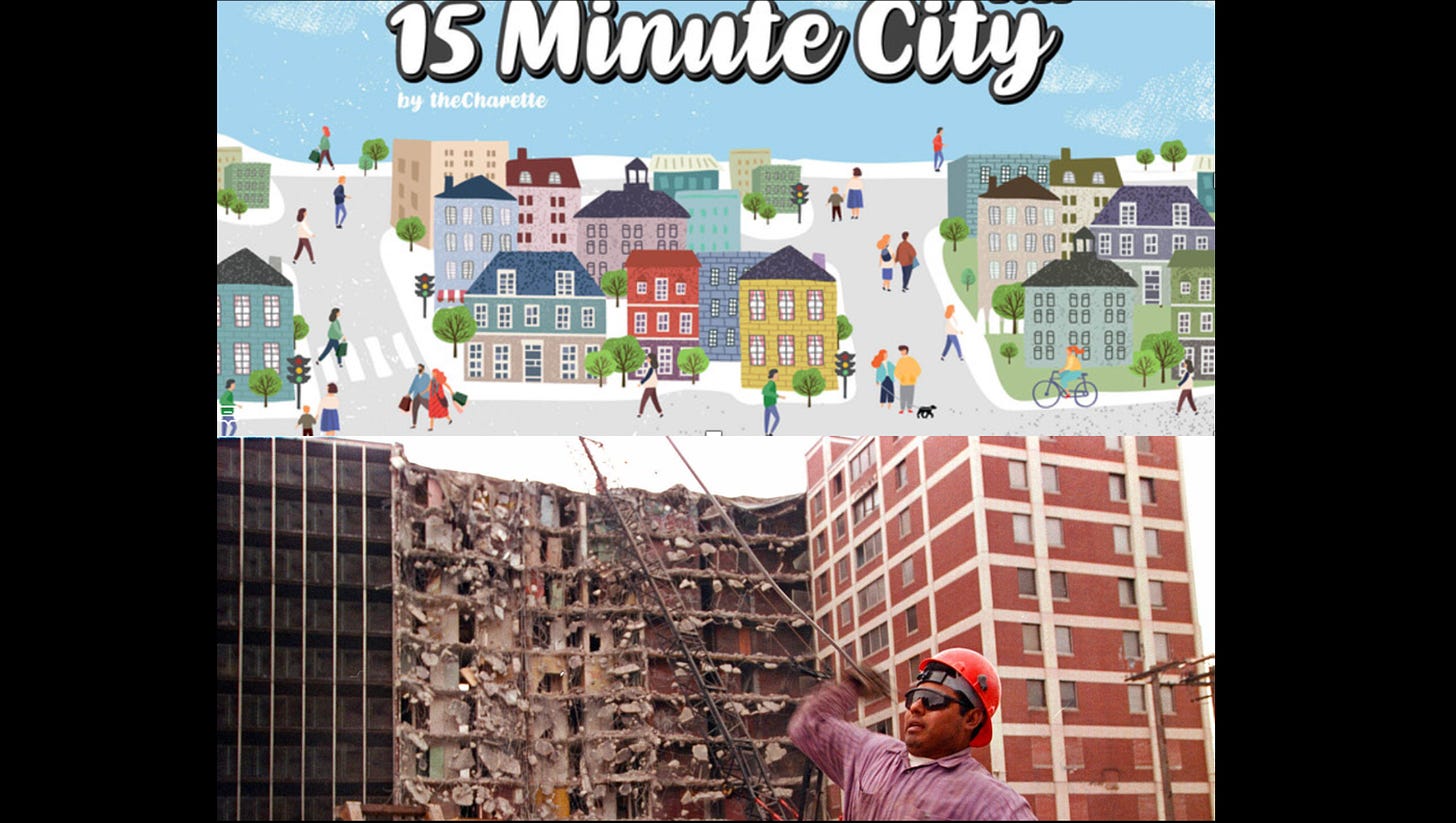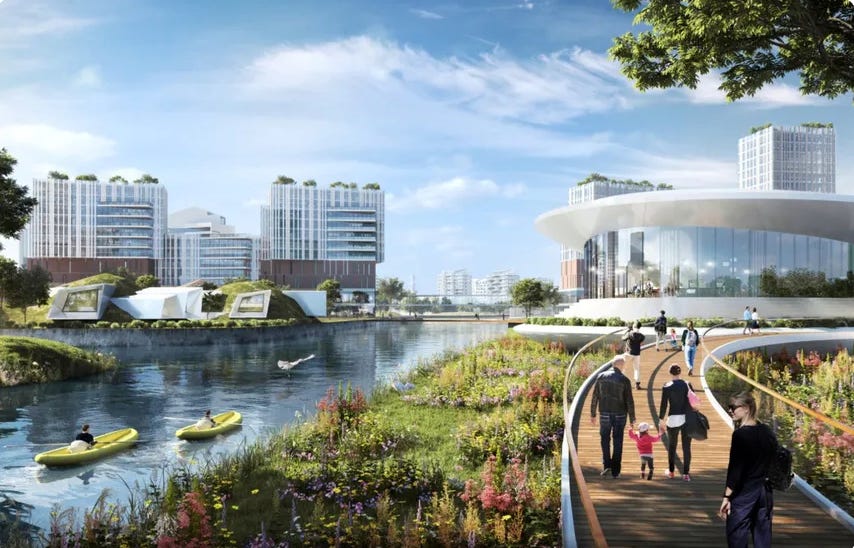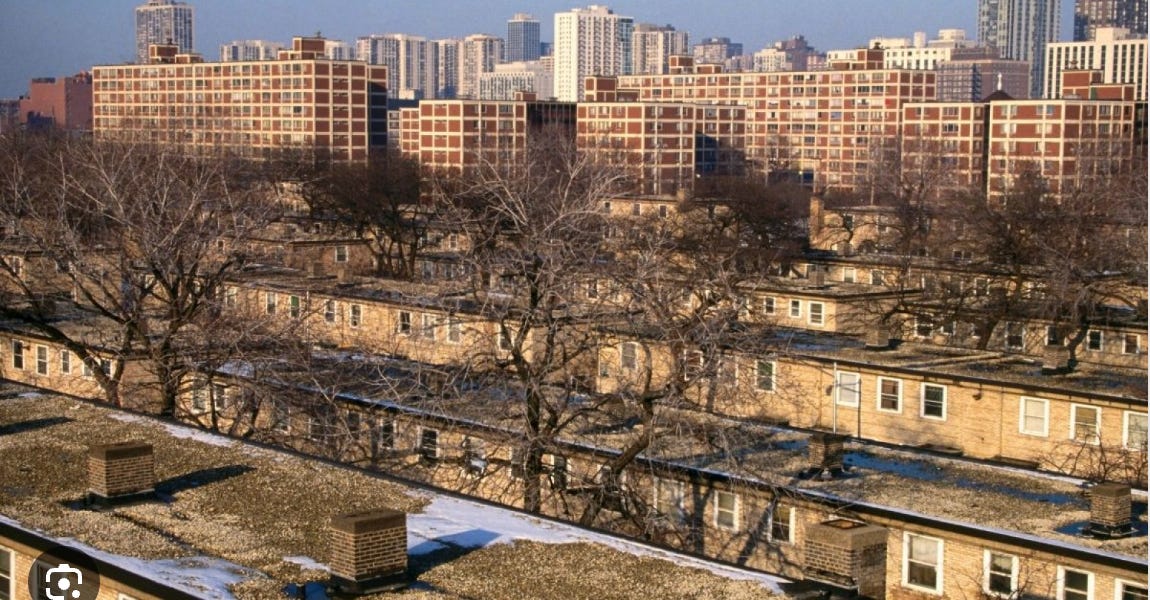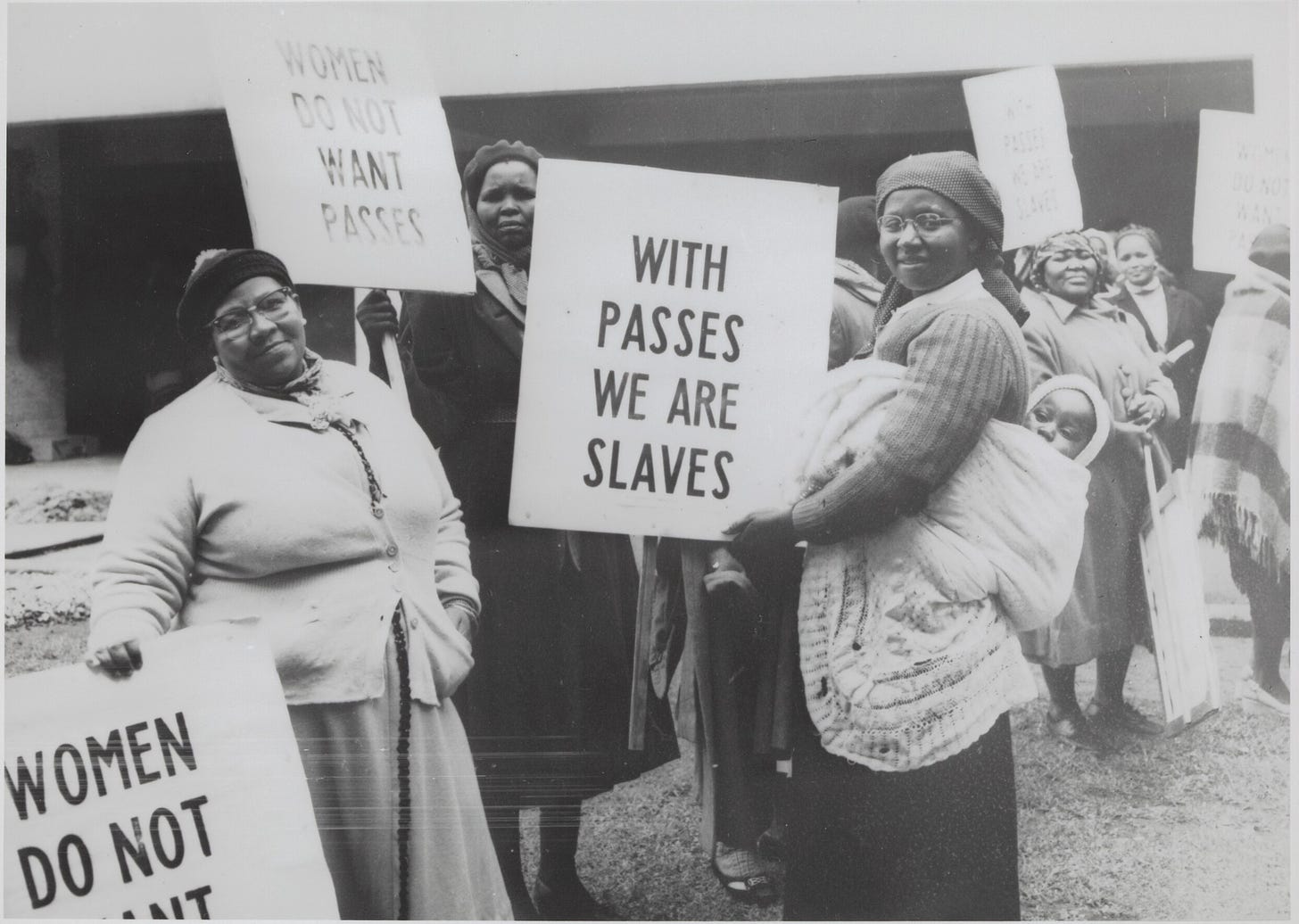Choosing Life
Waking up future generations.
For the uninitiated, cyberpunk is a sub-genre of science fiction set in the not too distant future. The common theme in this literary tradition is how individuals (the punks) living in a dystopian high-tech world fight the mega-corporations that control everything.
As young adults, Jill and I read the early works of cyberpunk. We knew the visions of William Gibson, as he had released Neuromancer in 1984. That book was transformational, so different from any science fiction that we had read in the past that we knew this was something special. Soon after, Bruce Sterling and others exploded onto the scene.
Born as the internet first began to change the world, his genre imagined new realities where hacker culture combines with augmented humans. Where everyone is “plugged in.” Hardcore anti-heroes living in a high tech, corporatist world. What could possibly go wrong?
As time passed, indulging my passion for science fiction became an unaffordable luxury, reality became medical school, a young family, science and an academic career, with little time for recreational reading. Surrounded by my own personal reality bubble, I was unaware of how this sub-genre of my youth developed and came into its own in a big way. Later on, when I rediscovered this (now mature) sub-genre via our boys’ own reading passions, it was like running into a childhood friend. What had been the dark near-term sci-fy alt-vision of reality developed by those revolutionary writers of the ‘80s and ‘90s had foreshadowed much of the internet culture which now surrounds us.
“The future is already here – it's just not evenly distributed.”
The Economist, December 4, 2003
―William Gibson
The cyberpunk ideas of a near-term dystopian future, with little hope for a “normal” (trad) life, became accepted as a normalized, hip, and predictable future for mankind - an emerging consensus narrative - and then morphed into comic books, video games, virtual reality, social media platforms and Reddit threads to emerge as a dominant “new normal” paradigm for many people under forty.
Then came the graphic novels and shortly thereafter, the amazing ascendency of Marvel movie Studios. Instead of the classics, young minds were filled with a series of comic book dystopian heroes and futures where what really mattered was surviving, not thriving.
These visions of a dark urban future for mankind are seductively realistic. They have also been very accurate in predicting new technologies and political realities. Writers of science fiction have a way of visualizing fantasies of the future which then become reality.
I believe that it is important to offer a counter-balance to this dark future.
Subjected to the intensity of the academic crucible of our own choice, over time Jill and I matured as individuals and as a couple. Influenced in part by the writing of Ayn Rand and our own small orchard farming past, in our late 40s we intentionally turned our backs on both the soul destroying reality of second class “adjunct” academic life with its dependency on “soft money”, as well as the developing urban dystopia envisioned in the cyberpunk genre and all of its offspring, and elected to build our family, our careers, our lives together by creating our own personal rural paradise.
But not everyone who is hunkered down in their condo or apartment, bombarded by industrial-grade fearporn, can see through the dark foreboding smog of the present towards a brighter future - which is why it is not enough to reject the new world order and these visions of an apocalyptic crumbling of western culture. Providing leadership requires that we must also offer a positive alternative.
Who is Robert Malone? is a subscriber based publication. Please consider supporting us by joining our community.
The future is now.
Fast forward twenty or thirty years, and 80s cyberpunk no longer seems like a dystopian future; a cautionary example of one of many futures that may or may not happen. Our present and near-term future seems to have morphed into an eerily familiar landscape as science, technology and cults of scientism fuse with globalized corporatism, banking and finance. All of which seems to be leading mankind to a very dark place.
Of course, there is a difference between the murky dreams and visions of science fiction, including cyberpunk, and informed speculation. But technology development is guided by the dreams of the young. In turn, the young are influenced by what they see happening in the world, where civilization is being driven to, and the visions of those who came before.
The dreams of the best and the brightest of their elders have all too often been transformed into dark futuristic nightmares. Throughout my life, threats of a ruined planet, plagues, synths, robots, AI, over-population, corruption, avarice, increasing governmental control, corporatism, censorship and narrative manipulation, global totalitarianism and world domination by transnational corporations have directed the Overton window of allowable discourse, of allowable futures, towards a selected subset of dark “transhumanist” realities that nobody (besides Yuval Harari and his ilk) really wants to acknowledge. Yet here we are. On the threshold of passively accepting a profoundly dystopian future of a “Fourth Industrial Revolution”, “Great Reset” and 15-minute segregated ghettos imposed by globalist totalitarians.
“History began when humans invented gods, and will end when humans become gods”
Is it any wonder that these dystopian visions, which now fill the heads of the young, are what has been and are being actively and globally promoted by a cabal of the hyper-wealthy, their corporations, their globalist guilds, and their “non-governmental organizations”?
How do we escape these dark dreams and darker times? How do we remain positive? How do we convince the next generations that the “fourth industrial revolution” of transhumanism and thought control is not inevitable, and that there can be a better future? A future of belief and striving for an ethical future which respects the individual as well as the community, and is grounded in time-tested commitment to families, health, and longevity in a balanced world. That these more “traditional values” which have stood the test of time across millennia and many civilizations are worth fighting for. That having the willpower to exercise and eat right, invest time in family and friends, be a part of a community, and develop a long-term, loving monogamous relationship are the not-so-secret, time tested keys to a long and happy life.
A “trad” (traditional) future is far more “adaptive” for human beings and human society than the the one portrayed in the violent and highly sexualized video games which distort youthful minds; the streaming and virtual reality black holes that can transform one’s mind into jelly. Tying oneself to an urban environment and “15 minutes smart cities”– where grungy streets, crumbling infrastructure, addiction and homelessness abound, is a recipe for never attaining a strong family life. Where escapism to an unlimited internet bandwidth synth-world becomes a lifeline for sanity - which is no sanity at all. I spent four years in downtown Chicago during the 1980s (Northwestern Medical School), where the prior urban paradise visions of bureaucrats and civic planners herded non-white segregated residents into what became a “Cabrini Green” hellscape. I have seen where this type of hubristic logic leads.
Ask yourself, based on past experience, are “fifteen minute cities” likely to mature into the “green” versions of paradise which are being marketed to us? Or will they become yet another series of segregated ghettos and “homelands” with enforced perimeters, constantly monitored, interpreted by “artificial intelligence” tools and algorithms used to guide robotic enforcers of various types. We have all seen this movie before.
This is not really so difficult. The internet is no substitute for real life. This is the truth that we, who have built healthy families, children, wives, husbands and friends, all know and live. Our homes, yards, pets, family, friends and community matter. We know that being productive and creative brings a sense of purpose. That purpose and self actualization in life is important. That religion and belief in something higher, better than ourselves, can bring solace and peace. That a long life well lived is worth pursuing.
The embedded messages in how we comport ourselves and our way of life, positive or negative, are the legacies that we pass on to the next generation and the next. This is part of the woven fabric which we live, share and create together, and which convey by example to our children and the world.
Urban planning fantasy or reality. The best laid plans often go awry. After three + years of COVIDcrisis global “public health” mismanagement and a constant drumbeat of weaponized existential fearporn, are you ready to entrust your children’s future to the globalists’ “Great Reset” fantasies?
Thank you for reading Who is Robert Malone. This post is public so feel free to share it.






No comments:
Post a Comment